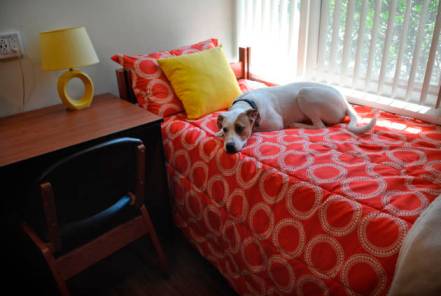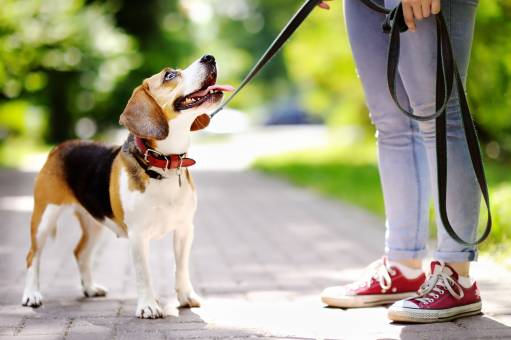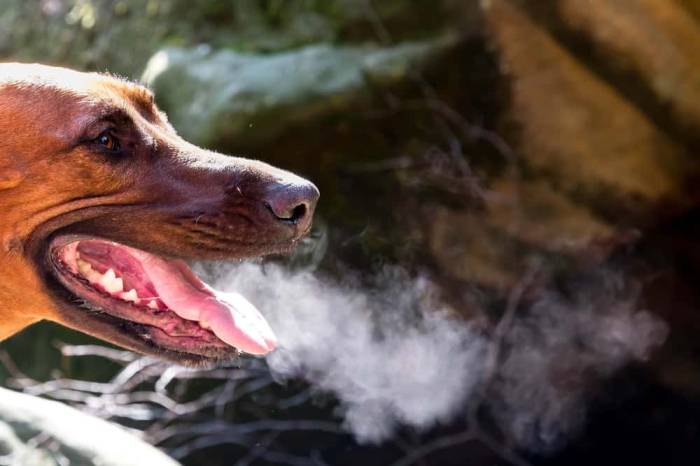Spaying or neutering your furry friend is one of the best things you can do for their health. It is a responsible thing to do as a pet owner and there is a need for more people to choose this surgery for their pooch. It is recommended to have your dog spayed or neutered when they are younger. But if you are rescuing a dog, it is never too late.
Connect with a verified veterinarian in minutes. Licensed vets are available 24/7 to answer your questions. No need to worry about your furry family member.
But first of all, let’s learn the reasons why spaying and neutering are beneficial and what the differences are between them. This will help you take the leap and get your dog neutered or spayed.
The Difference Between Spaying and Neutering
Spaying and neutering are both a surgical procedure that has the consequence of sterilizing your dog. This means that they will not be able to have puppies in the future. But the surgeries are different. Spaying is the process of removing the ovaries and uterus from a female dog. This means she will not be able to get pregnant and have pups. It is an advanced surgery, which may be referred to as an ovariohysterectomy.
Neutering is often used by pet owners to describe the sterilization of their pooch. But it is really the name given to the process of removing the testicles and associated structures from a male dog. This can also be called an orchiectomy. Again, if your canine has this procedure, he will not be able to get another dog pregnant.
The Best Age for Spaying or Neutering Your Dog
If you have your dog from when they were a puppy, the best time to neuter or spay them is around four to six months old. In some cases, it can be younger or older than this age. The best thing you can do is discuss your options with your veterinarian. They will be able to make a medical recommendation that lets you decide. If you are rescuing a dog from a shelter, it is best to get them spayed or neutered straight away. There are some shelters that insist they do this procedure before the canine is released to you. Be prepared that this may be part of the bill for adopted your pup.

Review symptoms, medications & behavior to keep your pets healthy with a Vet Online in just minutes.
Ask a Vet Live NowThe Benefits of Spaying or Neutering Your Dog
There are many health benefits and behavioral advantages when spaying or neutering your dog. If you are still deciding whether this is a surgery you want to go through with, here are some benefits.
1. Helps to Prevent Mammary Cancer
If your female dog is spayed, they have less chance of developing a mammary tumor. Around 25 percent of unsprayed dogs will develop cancer. Research finds that there is a lower risk of mammy cancer if your pooch has had the surgery to remove their ovaries and uterus.
2. Reduces the Number of Dogs in Shelters
Unfortunately, there are millions of dogs without a home in rescue centers across the country. There are two things you can do to help this. One, you can rescue a furry friend instead of going to a breeder. If you already have a pooch, the best thing you can do is spay or neuter them. This way, you can prevent more litters and dogs ending up in rescue centers.
3. Helps to Prevent Testicular Cancer
If you choose not to neuter your male dog, they may develop testicular cancer during their lifetime. During an orchiectomy, the testicles are removed. Of course, this means that cancer cannot develop. Tumors are not given the time to grow. Therefore, this is something to consider if you have a furry friend.
4. Can Help with Unwanted Behaviors
One of the most common misconceptions about spaying or neutering your furry friend is that it will change their behavior and personality. According to veterinarians, this does not happen. In fact, they say that spaying or neutering your pup is a good thing since it can stop unwanted behaviors. This can include aggression towards others, less marking and humping human legs.
The Risks Associated with Spaying and Neutering
Some pet owners worry about the risks involved with neutering and spaying their canine. It is important to realize that any surgery carries risk, no matter what the procedure is. This is because your pooch has to be administered a general anesthetic. While the risk of anything happening to your pup is low, this is something that all pet owners should be aware of.
It is possible for a veterinarian to carry out a physical exam and blood work to make sure that there are no underlying and unknown health problems.
Keeping an eye on your pup during aftercare will also make sure nothing goes wrong. For example, infection at the incision site and internal bleeding
The Recovery – What You Need to Know
Now it is time to talk about the recovery from spaying and neutering. You are in charge of the aftercare and it is important that you follow your vet’s instructions and do not rush your pet during recovery. Here are some things you need to know.
1. Prevent High Energy Activities
Think about what you need after surgery. Rest and recovery time. This is the same with your pooch. After spaying or neutering, they will need time to recover and rest after such a big surgery on their body. They will be sore and it will take time to get back to normal. This means they should not engage in any high energy activities. For example, running and jumping should be limited, as well as any tug of war or rough games. Anything strenuous is not going to be good for recovery.
Even after a few days, your dog may seem energetic and be like their old self. But this does not mean they should engage in the same level of activities yet. Of course, this is a good sign and it shows they are feeling better and recovering well. Instead of physical exercise, try to offer your pup mental stimulation instead. This will save them from becoming bored and depressed when they are spending a lot of time in the house. On average, dogs should avoid high energy activities for around two weeks. Pay attention to your pup and how they act, as well as what your vet tells you after surgery. It may take a little longer depending on their recovery. But do not worry, your dog will back to bouncing around before you know it.
2. Wear the Cone of Shame
If there is one thing that every dog hates it is the cone of shame. Unfortunately, dogs can be bad at licking their wounds. They will try to do this after they have been spayed or neutered. But if you allow them to do this, this can lead to infection at the incision site. In order to stop your dog licking, they will have to wear the cone of shame. Of course, this goes around their neck and prevents them from being able to reach the incision site. Most likely, your dog will act very sad when he or she is wearing the cone of shame. But this may be necessary to prevent infection.
If your dog refuses to wear the cone of shame, there are other methods you can use. For example, there is an inflatable collar that is more comfortable to wear and still prevents them from licking. Always slowly introduce a cone or inflatable collar so that your pup is not scared of it.
3. Keep Away from Other Dogs
After surgery, your dog is going to be tender and sore. They are also going to have fresh wounds and incisions. During this time, it is best to keep them away from other pups. When they are playing, they may injure themselves or open up the incisions. This is how the incision site can get infected and this will slow down healing and recovery. If your male dog has been neutered, it is also important to keep him away from female dogs for up to six weeks. This is because it will take time for testosterone to diminish in their body. At this point, it is still possible to get another dog pregnant. So, be safe and spend some alone time with your pup.
4. Avoid Baths
After being spayed or neutered, you should avoid bathing your furry friend for around 10 days. You do not want the incision site to get wet. This can lead to infection, which will delay healing. In addition, baths can be uncomfortable for your pooch when they are healing too. So, while you can wipe your pup’s paws, face and back, keep water away from the incision site completely.
5. Check the Incisions Regularly
Make sure that you look at your dog’s incisions every day. This is going to make sure that they are healing correctly and look healthy. To begin with, they will look red and sore. But over time, swelling will decrease it should start to look better. If you check them every day, you will be able to spot problems quickly. This will make sure they get the right care and catch any issues before they get worse. If the incisions remain red and swollen, as well as having a liquid discharge, this can be a sign of infection.
If you see these symptoms, it is best to contact your veterinarian. They will be able to take a look and provide treatment before it gets worse
6. Signs You Should Contact Your Vet
Pet owners are always worried that they will not be able to spot problems. But we have done some research and found some signs that show your pup may be sick after surgery. For example, if your dog is extremely lethargic and vomiting, this is not a good sign. Your dog will be tired after surgery and may skip his first meal if he is in pain. But if this continues, contact your vet.
We know that it can be difficult to know when your pooch is in pain. They cannot tell you and often act happy despite suffering from discomfort. But if you notice that they are shaking or drooling, this can be worrying. They may even try to hide away from everybody. If the incision site is bleeding or letting out a discharge, contact your vet for advice. Some bleeding can happen just after surgery. But if it continues, this can be a sign something is wrong. Do not hesitate to ask a professional to put your mind at ease.
The Recovery Time for Neutering and Spaying
The recovery time after surgery will depend on a lot of things. For example, if your dog has been spayed, this can take longer to heal than neutering does. It is an abdominal procedure that is more complicated. This means that if you have a male dog, they can recover quite quickly after surgery. In fact, some owners have said that it is like they have not had surgery at all. Of course, this is a generalization and it will depend on your individual dog. It is said that if you have a smaller dog, they will recover faster from neutering or spaying compared to a larger dog. This may be because the incisions are smaller. In addition, dogs that are older can take longer to heal and return to their normal, happy selves.
But this may not always be the case and again, it will be down to the individual dog. Always make sure that you follow your veterinarian’s instructions post-surgery. Normally, it will take several weeks before they are ready to return to their regular routine. They will be quieter and less active at first. Some will be happy just a bit more subdued than they normally are. Straight after the general anesthetic, they can be groggy and tired. Always keep an eye on them and if they remain very lethargic, ask your vet whether this is normal. They can always carry out an examination to make sure everything is good with your pup.
Connect with a verified veterinarian in minutes. Licensed vets are available 24/7 to answer your questions. No need to worry about your furry family member.

Julie
Julie is a graduate of the University of North Carolina, Wilmington, where she studied Animal science. Though contrary to the opinion of her parents she was meant to study pharmacy, but she was in love with animals especially cats. Julie currently works in an animal research institute (NGO) in California and loves spending quality time with her little cat. She has the passion for making research about animals, how they survive, their way of life among others and publishes it. Julie is also happily married with two kids.
Review symptoms, medications & behavior to keep your pets healthy with a Vet Online in just minutes.
Ask a Vet Live Now



